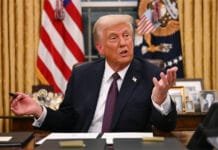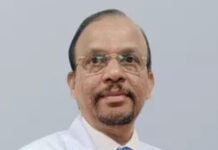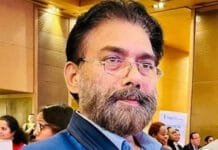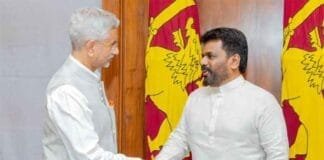Kathmandu, September 12 — In the marble corridors of Sheetal Niwas, Nepal’s presidential palace, history is being rewritten. For over three hours yesterday evening, a marathon consultation unfolded behind closed doors, as President Ram Chandra Paudel met with constitutional experts, youth leaders, and military officials to finalize the contours of Nepal’s next government. The resignation of Prime Minister KP Sharma Oli—forced by a Gen Z-led uprising—has left the nation at a political crossroads, and the question gripping the country is no longer if change will come, but who will lead it.
 From Protest to Power Vacuum
From Protest to Power Vacuum
What began as a backlash against the September 4 social media ban has evolved into a full-blown revolution. The ban, which targeted 26 platforms including Facebook, Instagram, YouTube, WhatsApp, and X, severed digital lifelines for millions and gutted 80% of Nepal’s internet traffic. But the outrage ran deeper—fueled by years of youth unemployment, dynastic corruption, and digital repression.
By September 8, Kathmandu was ablaze. Parliament was breached, ministers’ homes torched, and over 13,000 prisoners escaped amid the chaos. The death toll has now reached 31, with more than 1,000 injured. Oli’s resignation on September 10 marked the collapse of the old guard, but it also triggered a constitutional dilemma: who would lead the transition?
 Sheetal Niwas: The Search for a New Prime Minister
Sheetal Niwas: The Search for a New Prime Minister
Inside Sheetal Niwas, discussions centered on one name: Sushila Karki, Nepal’s first female Chief Justice and a symbol of judicial integrity. Gen Z protesters, led by the Hami Nepal movement, have rallied behind her, citing her fearless rulings against corruption and her independence from political factions. However, Karki is not a sitting Member of Parliament, and her appointment would require constitutional innovation or presidential discretion.
While there is no objection to her leadership, legal experts are exploring precedents and mechanisms—such as Article 76(5) of the Constitution—that could allow the President to appoint a non-MP as Prime Minister in extraordinary circumstances.
 Other Contenders: Technocrats and Youth Icons
Other Contenders: Technocrats and Youth Icons
If Karki declines or legal hurdles prove insurmountable, other names are in play:
- Kulman Ghising, the head of Nepal Electricity Authority, is widely admired for ending the country’s chronic power outages. His technocratic credentials and clean image make him a strong candidate for interim leadership. Sources close to the President suggest Ghising is now the frontrunner.
- Balendra Shah, Kathmandu’s 35-year-old mayor and a youth icon, has declined the role but remains a key voice in the movement.
- Harka Sampang, the activist mayor of Dharan, is also being considered for a role in the transitional cabinet.
 Gen Z’s Demands: A Blueprint for Reform
Gen Z’s Demands: A Blueprint for Reform
The protesters have presented a clear roadmap:
- Dissolution of Parliament
- Formation of a transitional government led by a non-partisan figure
- Fresh elections within eight months
- A judicial commission to investigate political corruption and asset holdings
- Restoration of digital freedoms and repeal of the Social Media Bill 2081
This is not just a call for regime change—it is a demand for systemic overhaul. The “Nepo Kids” trend, which exposed the lavish lifestyles of politicians’ children, has galvanized youth locked out of opportunity.
 Curfews, Crisis, and Global Concern
Curfews, Crisis, and Global Concern
Kathmandu remains under curfew, with shoot-at-sight orders still active. Tribhuvan International Airport has resumed limited operations. The economic toll is mounting—telecom losses exceed Rs 5 billion, and over 80,000 jobs are at risk due to the digital blackout.
International bodies including the UN, Amnesty International, and Human Rights Watch have condemned the crackdown and called for investigations into protest-related deaths. India and China are closely monitoring the situation, with diplomatic channels open amid fears of regional instability.
 Monarchy’s Echo: Gyanendra’s Shadow Returns
Monarchy’s Echo: Gyanendra’s Shadow Returns
Amid the chaos, calls for the return of the monarchy have resurfaced. Protesters have waved portraits of former King Gyanendra, chanting “Maharaj Lauta, Desh Bachau.” For many, the chaos of democracy has rekindled nostalgia for royal stability. While the monarchy’s return remains unlikely, its symbolic resurgence underscores the depth of public disillusionment.
 What’s Next: A Nation on the Brink of Reinvention
What’s Next: A Nation on the Brink of Reinvention
As the sun rises over Sheetal Niwas, Nepal stands at a historic inflection point. The youth have spoken—not just with slogans, but with sacrifice. Whether the nation embraces their call for reform or retreats into old patterns will determine the fate of its democracy.
The next Prime Minister will not merely inherit a government—they will inherit a revolution. From the embers of Kathmandu’s unrest, Nepal must now choose: rebuild its democracy or rewrite it entirely.
AUTHOR
Mr. Onkareshwar Pandey is an Executive Fellow at Woxsen University and a distinguished media professional with over 30 years of multi-sectoral experience spanning Print, Television, Digital Media, and Television News Agencies. He has held senior leadership roles such as Group Editor, Managing Editor, Media Head, and CEO across major Hindi and English media platforms.
He served as Senior Group Editor at Rashtriya Sahara, Managing Editor of The Sunday Indian (published in 14 languages), Editor at ANI—India’s largest TV News Agency—and the Opening Anchor of Sahara TV, among other notable positions. Currently, he is the CEO & Editor-in-Chief of Observer Global Media Group, New Delhi.
A prolific writer and editor, Mr. Pandey has authored and edited 10 books and has travelled to more than 10 countries. He sits on the boards of various institutions, offering strategic 360° solutions in brand positioning, networking, and thought leadership.
As Founder & CEO of Golden Signatures Research & Consulting, he has established eleven cross-national knowledge networks of Thought Leaders, connecting India with Commonwealth nations. He has also instituted several prestigious national and international awards.
His contributions have earned him numerous accolades, including the Atal Bihari Vajpayee Award for Journalism, Lok Nayak Jayaprakash International Award, and the Best Journalist of the Year Award, among others.
Mr. Pandey actively engages with several social and professional organizations. He currently serves in leadership roles as:
- Executive President, Broadcasters Club of India
- Executive Director, Dignity India and ADRID (Disaster Management)
- Managing Trustee, Diaspora India
He is also a Google Certified Trainer in combating fake news in media and holds a Diploma in Yoga from Vishwayatan Yogashram, Katra, J&K.
Contact: editoronkar@gmail.com
Mobile: +91-9910150119 | WhatsApp: +91-9311240119
Disclaimer: The views expressed by the author in this feature are entirely their own and do not necessarily reflect the views of INVC

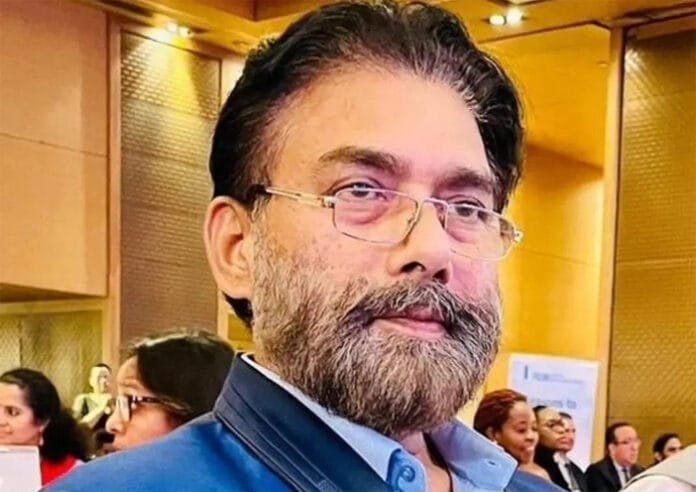
 From Protest to Power Vacuum
From Protest to Power Vacuum Sheetal Niwas: The Search for a New Prime Minister
Sheetal Niwas: The Search for a New Prime Minister Other Contenders: Technocrats and Youth Icons
Other Contenders: Technocrats and Youth Icons Gen Z’s Demands: A Blueprint for Reform
Gen Z’s Demands: A Blueprint for Reform Curfews, Crisis, and Global Concern
Curfews, Crisis, and Global Concern Monarchy’s Echo: Gyanendra’s Shadow Returns
Monarchy’s Echo: Gyanendra’s Shadow Returns What’s Next: A Nation on the Brink of Reinvention
What’s Next: A Nation on the Brink of Reinvention